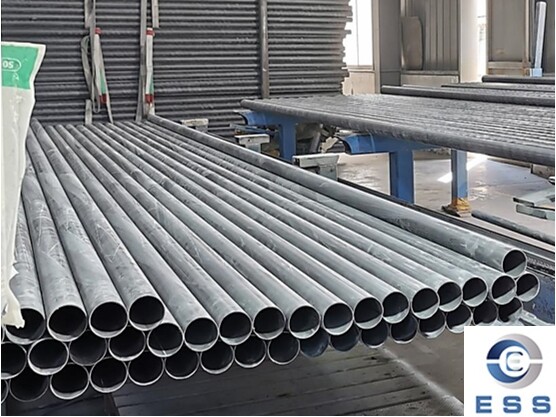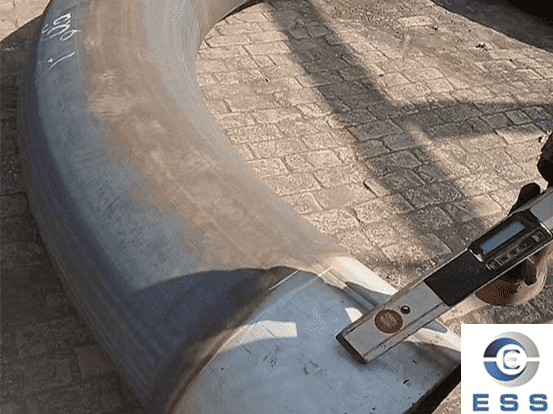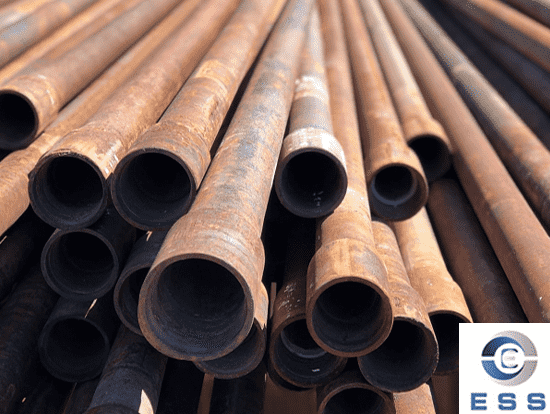
In the fields of industrial manufacturing,
automotive parts, hydraulic systems, etc., the application scenarios of the precision
tube are constantly expanding. Choosing a professional and reliable
precision tube manufacturer has become the key for enterprises to ensure
product quality and supply chain stability. This article systematically sorts
out and selects the core indicators of precision tube manufacturers from five
dimensions: enterprise qualification certification, production process level,
quality inspection system, customized service capabilities, and after-sales
service guarantee.
Enterprise qualifications and industry
certification system
1. International general certification
When selecting a precision tube
manufacturer, first check whether the company has ISO9001 quality management
system certification and ISO14001 environmental management system
certification. These international general certifications can prove the manufacturer's
systematic operation capabilities in quality control, process specifications,
environmental compliance, etc.
2. Special equipment manufacturing license
The special equipment manufacturing license
(TS certification) is a key qualification for evaluating hydraulic precision
steel tube suppliers. Manufacturers holding Class A pressure pipeline component
manufacturing licenses have more guarantees for their products in core
indicators such as pressure resistance and sealing.
3. International pressure equipment
directive certification
Check whether the manufacturer has passed
the PED/AD2000 and other international pressure equipment directive
certifications, which is particularly important for the purchase of precision seamless
steel pipes exported to the EU market. Manufacturers with API
5CT certification are more competitive in the field of oil drilling pipes.
Core production processes and technical
parameters
1. Cold rolling process
The precision cold rolling process directly
affects the dimensional accuracy of the steel pipe. High-quality manufacturers
should be equipped with the ability to control the outer diameter tolerance
within ±0.05mm. Observe whether the cold rolling mill
is equipped with intelligent control devices such as online diameter gauges and
laser correction systems.
2. Cold
drawing process
In the production of seamless pipes, it is
necessary to focus on the mold accuracy level and lubrication system of the
cold drawing process. Manufacturers using multi-pass cold drawing processes can
achieve product straightness of up to 0.3mm/m and wall thickness uniformity
error ≤5%.
3. Heat treatment equipment configuration
The heat treatment equipment configuration
determines the stability of material performance. Check whether the
manufacturer is equipped with a fully automatic controlled atmosphere
protection furnace to ensure that the hardness uniformity of the precision hydraulic
tube is controlled within the range of HRC±2.
Quality inspection equipment and
standard implementation
1. Inspection laboratory equipment
Precision steel pipe inspection
laboratories should be equipped with three-coordinate measuring machines,
electronic universal testing machines, metallographic microscopes and other
equipment. Focus on checking whether the manufacturer implements high-standard
inspection specifications such as GB/T3639 and DIN2393.
2. Non-destructive testing
In the non-destructive testing link,
manufacturers that use a dual inspection system of eddy current flaw detection
+ ultrasonic flaw detection can achieve a defect detection rate of 99.9% for
precision cold-drawn steel pipes. Pay attention to whether the flaw detection
equipment has digital signal processing functions.
3. Material chemical composition analysis
Material chemical composition analysis
requires a direct reading spectrometer to ensure that the alloy composition
deviation is controlled within ±0.05%. High-quality
manufacturers will also provide a mechanical property test report for each
batch of products.
Customized service and rapid response
capability
1. Non-standard customization capability
Investigate the non-standard customization
capability of precision steel tube manufacturers, including technical reserves
such as special alloy material development and special-shaped section
processing. Suppliers with CNC precision rolling technology can meet the
ultra-high precision requirements of ±0.02mm.
2. Evaluate the response speed of the
technical team
High-quality suppliers can usually complete
the drawing review and provide process solutions within 48 hours. Pay attention
to whether the manufacturer has established a customer-specific engineering
service team.
3. Verify the sample delivery cycle
Professional precision tube manufacturers
usually take no more than 7 working days from order receipt to sample delivery.
The delivery cycle of batch orders should be controlled within 15-30 days, and
equipped with a visual production progress query system.
After-sales service and technical
support guarantee
1. Quality assurance system
A complete quality assurance system should
include a 12-month quality traceability period and provide free technical
consultation. High-quality manufacturers will establish a customer product
database to achieve full life cycle quality tracking.
2. Logistics guarantee
Choose suppliers with anti-rust packaging
technology and professional
transportation teams. Precision cold-rolled steel pipes should use
multi-layer protective packaging with vapor phase anti-rust film + desiccant.
3. Provide process optimization suggestions
Regularly provide process optimization
suggestions, including technical documents such as steel pipe storage
environment guidance and installation and use precautions. Manufacturers who
have established joint laboratories can provide on-site process diagnosis
services.
Frequently asked questions (FAQ)
Q1: How to verify the actual production
capacity of precision tube manufacturers?
A: It is required to conduct an on-site
inspection of the production workshop, focusing on the operation records of
online testing equipment and the raw material storage ledger.
Q2: What certification documents are
required for precision tubes made of special materials?
A: It is necessary to request material
certificates, third-party test reports, heat treatment process curves and RoHS
compliance declarations.
Q3: How to deal with dimensional deviation
disputes of precision tubes?
A: The acceptance criteria should be
clearly stated in the contract. It is recommended to retain sealed samples and
use testing equipment certified by the Institute of Metrology for review.
Summary
Selecting a precision tube manufacturer
requires a systematic evaluation of core elements such as technical strength,
quality system and after-sales service. High-quality suppliers should have core
technologies of precision cold rolling/cold drawing, strict process control
capabilities and a fast-response service system. Through the indicator system
and comparison method provided in this article, purchasers can accurately
screen out strategic partners that can meet current needs and have long-term
technology upgrade capabilities.













 Eastern Steel Manufacturing Co.,Ltd not only improve product production and sales services, but also provide additional value-added services. As long as you need, we can complete your specific needs together.
Eastern Steel Manufacturing Co.,Ltd not only improve product production and sales services, but also provide additional value-added services. As long as you need, we can complete your specific needs together.










